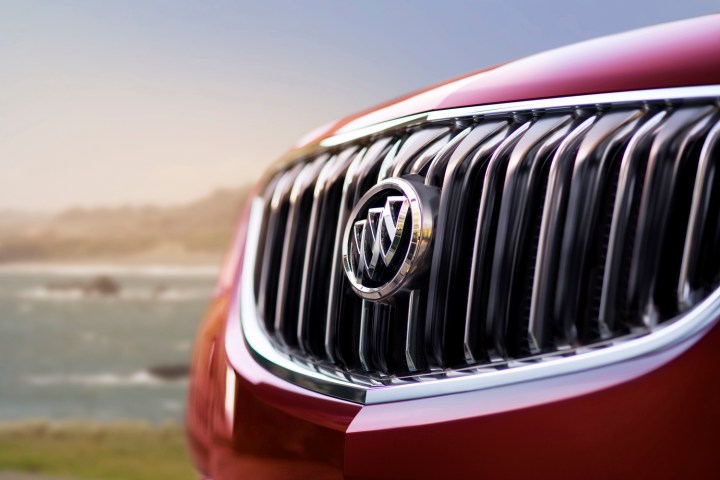
The EPA economy estimates are incorrect on 59,823 2016 models, including the Chevrolet Traverse, GMC Acadia, and Buick Enclave SUVs. GM halted delivery of these vehicles until new paperwork is ready. The mileage estimates are 1-2 miles per gallon off what they should be. GM said this “inadvertent error” overstates fuel economy.
In a corporate statement, GM said, “The error caused the EPA estimated fuel economy to be listed on the window label as 1-2 mpg (miles per gallon) higher than it should have been. GM is stopping sale of the affected models until a corrected label is printed and affixed. GM will contact owners of the affected models to address this situation.”
The engines and transmissions of the models in question didn’t change from 2015 to 2016, but fuel economy decreased. GM did not give a reason for the drop in gas mileage with the newer vehicles. The corporation said it only noticed the error with 2016 model year vehicles when engineers were working on the paperwork for next year’s models.
The thousands of new Traverse, Acadia, and Enclave SUVs already sold went out with faulty EPA window stickers. That error, regardless of why it happened, may or may not matter with current owners of the vehicles. It matters big time with the Environmental Protection Agency, however.
The Clean Air Act requires strict compliance and can apply equally strict penalties. Part of the Act reads, “Violators are subject to civil penalties up to $37,500 per noncompliant vehicle or engine, $3,750 per tampering event or sale of defeat device, and $37,500 per day for reporting and recordkeeping violations.” Reading those potential penalties, you can see why GM didn’t hesitate to halt sales.
Beyond the gas mileage, some SUV owners may get fines that could be assessed against GM. Then there’s another, even larger issue with the buyer and car maker relationship. Vehicle buyers are usually making the second largest purchase of their lives, and trust is essential. The many issues with diesel fuel emissions in the last two years have threatened that trust. This GM SUV sticker error is small stuff compared to defeating emissions controls or Mitsubishi’s recent admission of years of cheating on fuel economy tests. However, every misstatement or error detracts from the assumption of trust.
Especially as we’re close to a technology paradigm shift with self-driving cars, we need to be able to take the car companies’ word for their claims.



